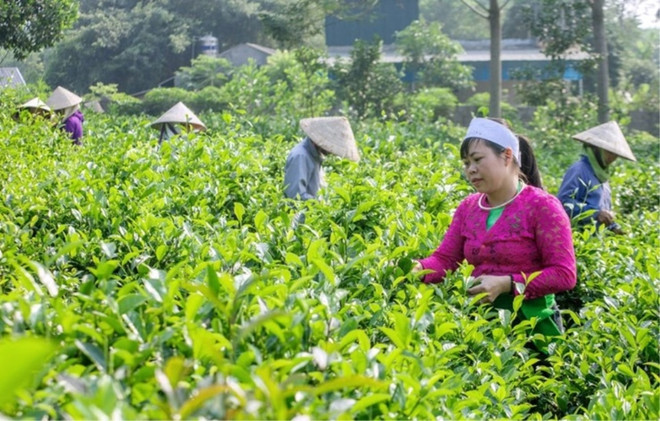 Energy transition is a "golden opportunity" for Vietnam to ensure and improve social security. - Illustrative image (Photo: VNA)
Energy transition is a "golden opportunity" for Vietnam to ensure and improve social security. - Illustrative image (Photo: VNA)According to Christensen, besides opportunities, labourers also need to be equipped with skills to change jobs, aiming for sustainabledevelopment for both businesses and workers.
At the 2021 United Nations ClimateChange Conference of the Parties (COP26), Vietnam and nearly 150 other countries made strongcommitments to net zero emissions by mid-century. Together with more than 100 countries,Vietnam also joined the Global Methane Pledge (GMP) to reduce methane emissions by 2030.
Vietnam is also one of the firstcountries, after South Africa and Indonesia, to join the political declarationon establishing the JustEnergy Transition Partnership (JETP). Since then, the country has mobilisedinternational commitments and funds to support its green transitionprocess.
According to the Ministry of Labour, Invalids and SocialAffairs (MoLISA), the energy transition process cancreate unfair impacts between sectors, communities, especially vulnerablegroups, in several aspects such as job changes, job loss, poor skills of labourers,the mismatch between skills of existing workers and the demand of the greeneconomy.
In particular, low-income communities can be greatly impacted byenergy transition and efforts to reduce emissions as they cannot afford to payclean and green energy costs, the ministry said.
Trinh Thi Nguyet from the MoLISA’s Department of Social Protection providesan example, emphasising the need for social protection measures for elderlyworkers working in thermalpower plants undergoing transition or coal mines scaling down operations.
According to Chu Thi Lan from the MoLISA’s Institute of Labour Science andSocial Affairs, the transition of employment during the shift to a net-zeroemission economy may necessitate significant changes in the energy,transportation, and production sectors, and this could lead to the displacement ofworkers in those sectors.
She underlined the need to have policies to ensure that workers in theseindustries have access to retraining and support to change to newemployment opportunities.
In the process of implementing the JETP, the MoLISA was tasked with coordinatingwith relevant ministries, sectors, and agencies to develop mechanisms,policies and solutions to promote equitable transition for vulnerable groups,and fair energy conversion, and respond to climate change, Lan said.
It will provide support for vocational training,retraining, job creation, and other forms of assistance for workers affectedduring the energy transition, and coordinate with the Ministry of NaturalResources and Environment to implement plans for mobilising resources.
The ministry will also join working groups to ensure a fair transitionaligned with the ILO’s declaration on fundamental principles and rights atworkplaces to ensure that the entire society can benefit from the greentransition, Lan added./.






























